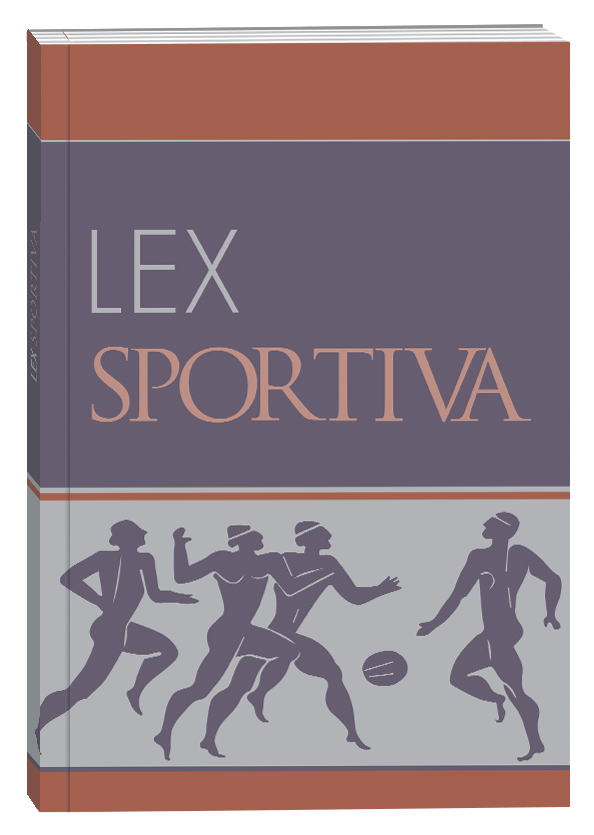SANCTIONS IN SPORT: INTERNATIONAL-LEGAL EXPERIENCE
DOI:
https://doi.org/10.32782/lexsportiva/2021.1.6Keywords:
sport, sanctions, sports disputes, case law, sports lawAbstract
Bringing to justice for violations in the field of sports is one of the most controversial issues in modern sports. This fact is connected, first of all, with the existence of the principle of sports autonomy. In particular, in the field of sports there is its own system of arbitration courts, which apply in their activities mainly quasi-legal acts issued by the governing sports bodies. In addition, the field of sports claims to be completely independent of the governing influence of government agencies on any relations in this field. Some researchers, however, believe that sport has de facto formed its own specific legal order. Accordingly, it is sometimes quite difficult to establish the boundaries of those relations that are subject to self-regulation and those that should be regulated by law. Issues of bringing to justice for sports offenses belong to this problem category. The authors of the article explored a particular aspect of legal liability in sports, namely - the problem of sanctions. At the same time, the foreign experience of applying sanctions for violations in the field of sports was carefully analyzed, as the domestic practice of applying sanctions for offenses in sports has not yet been fully formed. Moreover, the domestic Supreme Court takes the position that all disputes in the field of sports should be considered by the governing sports bodies. At the same time, in foreign countries, general courts often accept similar cases. Thus, a careful analysis of the jurisprudence of Canada and the Czech Republic led to the conclusion that even despite the risky nature of sports in itself, there are mechanisms to bring violators to justice, in particular - in terms of compensation. At the same time, the subjective side of the offense in the field of sports is subject to legal analysis in a slightly different way than in all other cases. In particular, a person will be found guilty of committing an offense only if there is intent to violate the rules of sport and commit an offense.
References
Yates, J., & Gillespie, W. (2002). The problem of sports violence and the criminal prosecution solution. Cornell Journal of Law and Public Policy, 12, 145-168. Retrieved from: https://www.researchgate.net/publication/228297427_The_Problem_of_Sports_Violence_and_the_Criminal_Prosecution_Solution.
Canada. Man. Q.B. (1965). Agar v. Canning. Retrieved from: https://pacelawfirm.com/ontario-court-awards-700000-for-injuries-sustained-in-a-hockey-game/.
Fast, K. (2004). Sport liability law. A guide for amateur sports organizations and their insurers. Vancouver: Dolden Wallace Folick LLP. Retrieved from: http://laboratoire-droit-sport.fr/wp-content/uploads/2013/10/Sport-Liability-Law-January-2004.pdf.
Canada. Ontario Provincial Court. (1971). Regina v. Green. Retrieved from: https://www.canlii.org/en/ca/scc/doc/1971/1971canlii1141/1971canlii1141.html
Canada. Ontario Provincial Court. (1970). Regina v. Maki. Retrieved from: https://www.canlii.org/en/ca/scc/doc/1971/1971canlii1141/1971canlii1146.html
Canada. Ontario District Court. (1989). Regina v. Ciccarelli. Retrieved from: https://tspace.library.utoronto.ca/bitstream/1807/11363/1/MQ29452.pdf;Genuine.
Canada. Saskatchewan Court of Appeal. (1989). R. v. Cey. Retrieved from: https://swarb.co.uk/regina-v-cey-1989/.
Canada. Man. S.Ct. (1934). Elliott v. Amphitheater Ltd. Retrieved from: https://www.docshero.net/solution-manualfor-critical-concepts-of-canadian-business-law-6th-edition-jan-weir-fran-smyth/.
Czech Republic. (2012). Civil Code. Retrieved from: https://is.muni.cz/el/1422/podzim2015/SOC038/um/NObcZ_anglicky_strojovy_preklad.pdf.
Králík, M. (2015). Civil Liability of Sports Participants for Sports-Related Injuries in The Central Europe And in The Czech Republic. The International Journal of Social Sciences and Humanities Invention, 2(1), 1021-1047. Retrieved from: http://valleyinternational.net/index.php/our-jou/theijsshi.
Australia. (1978). R. v. Billinghurst. Retrieved from: http://www.e-lawresources.co.uk/cases/R-v-Billinghurst.php.
Australia. (1986). R. v. Johnson. Retrieved from: https://www.judiciary.uk/wp-content/uploads/2016/10/r-v-johnson.pdf
Australia. Supreme Court of Queensland. (1991). R. v. Heke. Retrieved from: https://www.queenslandjudgments.com.au/caselaw/qca/2019/93
Australia. The High Court. (1967). Rootes v. Shelton. Retrieved from: https://swarb.co.uk/rootes-v-shelton-1965/.
Australia. The New South Wales Supreme Court. (1989). Frazer v. Johnston. Retrieved from: https://eprints.qut.edu.au/53131/1/53131P.pdf
Australia. The Supreme Court of Queensland. (1989). Hilton v. Wallace. Retrieved from: https://www.queenslandjudgments.com.au/caselaw/qsc/1988/416?mview=hilton|wallace.|&u=.
Podosky, A. (1994). Civil and Criminal Liability of Players. Queensland: University of Technology. Retrieved from: https://eprints.qut.edu.au/53131/1/53131P.pdf.








